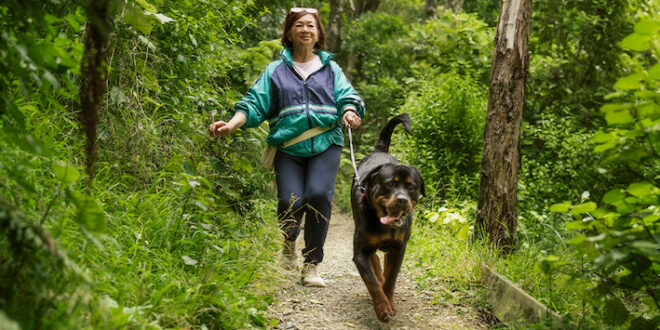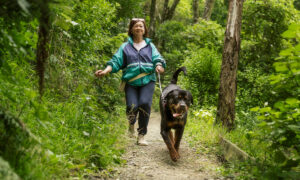Just in case you haven’t already realised it, Kiwi Grownups are living the dream! Yes, cost of living is rising, and weather events are throwing us curve balls, but in terms of knowing how to look after ourselves, we’re onto it like no other generation. We’re ‘up and at’em’ when it comes to sharpening up the grey matter, with Duolingo a favourite among those who want to learn a new language, and jigsaw puzzles flying off the shelves as winter approaches (do you realise each time you tackle a jigsaw puzzle, you’re exercising your brain in at least 4 different directions at once). We love Wordle, Sudoku, cryptic crosswords, quiz nights, and socialising.
We’re also up with the play when it comes to slipping in the casual exercise, too. While some of us enjoy a walk to the shops, or throwing a stick for Fido at the dog park, others are out with their walking groups, joining in with tai chi, yoga, tennis, golf, bowls and badminton. But here’s the thing – whether you’re an activity bunny, or content with fitting in the daily walk because you know it’s good for you, it takes just one fall to ruin your fun and good intentions – sometimes for months. And it’s all to do with balance.
Our most common cause of injury
Not convinced? Then think about this: falls are the most common cause of injury in people 65 years and older, and they’re largely to do with poor balance. As we age, our muscle mass decreases dramatically, potentially robbing us of strength. At the same time, we’re frequently dealing with issues of deteriorating eyesight, hearing, and concentration – which contributes to loss of balance. What’s more, if we do suffer a fall, it’s likely to result in a loss of independence and well-being.
That’s right! When we’re incapacitated by a physical injury, our mental health takes a tumble, too. That’s because being ‘home-alone’ while our friends are out having fun, or having to depend on family and carers until we’re up and running again, is downright dispiriting.
Good news!
The good news, however, is many of us are already aware of the link between ageing and the potential for poor balance, which is why we’re attending the likes of community strength and balance classes to reduce our chances of falling (if you haven’t already heard of these balance boot-camps, check here to find one that’s close to you). The other positive, is most of us now own, and know how to use, a smart phone – sometimes more than is good for us! As for how a smart phone can help us improve our balance and reduce our chances of falling – read on.
Free and easy
In a ‘ta-daa!’ moment, a new balance training app, with a proven track record in reducing falls, is about to hit your app store. It’s called ‘Nymbl,’and already, a whopping 65% of users say it’s significantly improved their balance. 87% say it’s improved their balance confidence, and an equal number are ready to recommend it to a friend. What’s even better, is this revolutionary new balance-enhancing digital tool is completely FREE! Not to mention fun, home-based, and easy-peasie to use. And it incorporates the brain games we’ve come to love!
Nymbl isn’t a gimmick. It’s ACC researched and endorsed, and it’s available from your favourite app store. Just download it, sign in, and you’re off on a 10 minute a day, at-home, balance-enhancing adventure, set to become a favourite with you and your friends (and don’t be surprised if you have to wrest it from the grandies to get-in your training!).
Jokes aside, Nymbl is a game-changer. For those who are already attending strength and balance classes, add it to your portfolio of age-defying tools. If you’ve never considered balance, and how important it is to ageing safely and with style, download Nymbl now, and be sure to tell others about it.
Balance does become more challenging with age; that’s a given, but it’s how we tackle the challenge that counts. Don’t let age define who you are and what you want to achieve. Download Nymbl, use it, talk about it – and sharpen your brain and your body so you can continue living the life you love!










Admin - 1 year ago
Hi Lady-Jayne, as far as I’m aware our articles have never been download-able. You could try clicking the print button then save the document as a pdf (before hitting the print button).